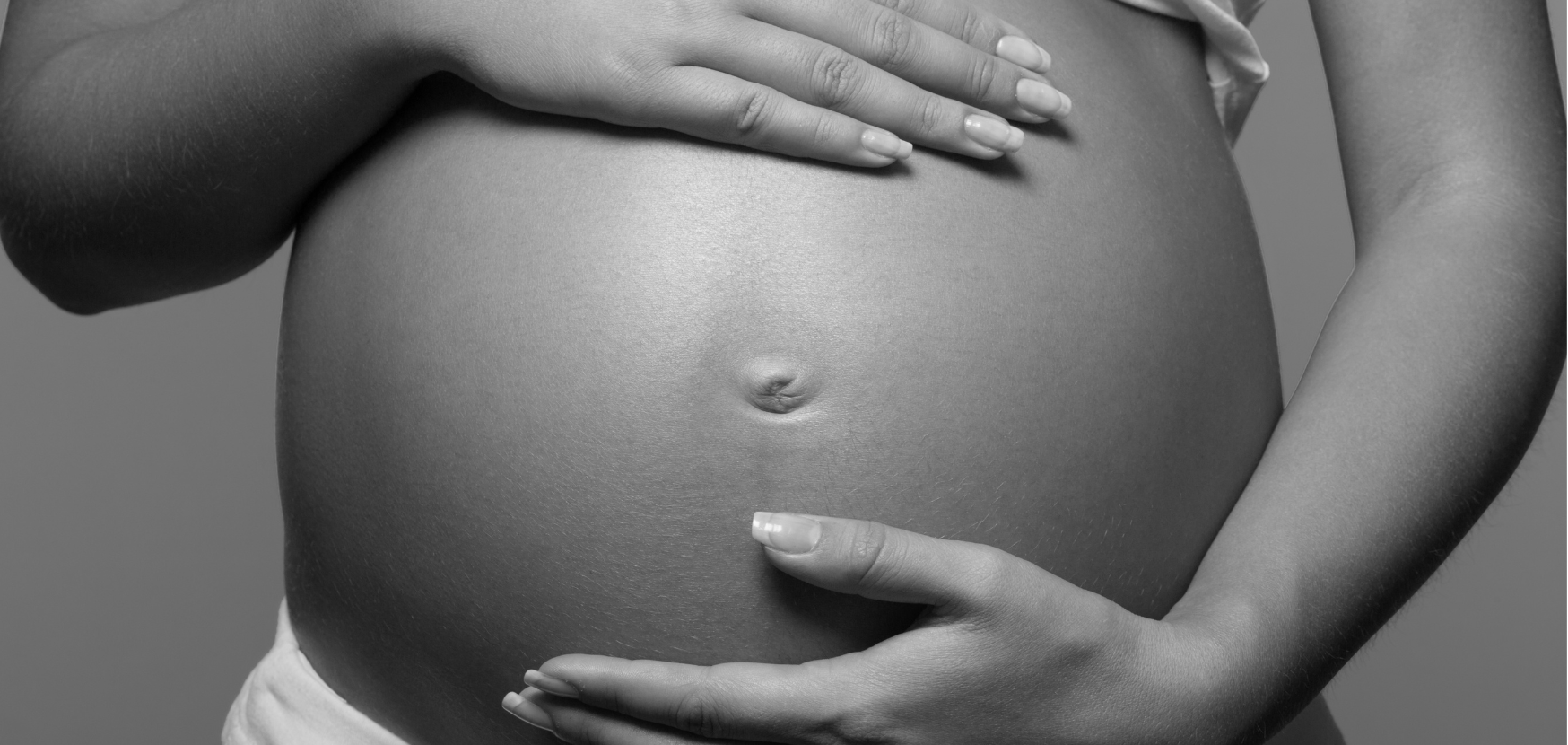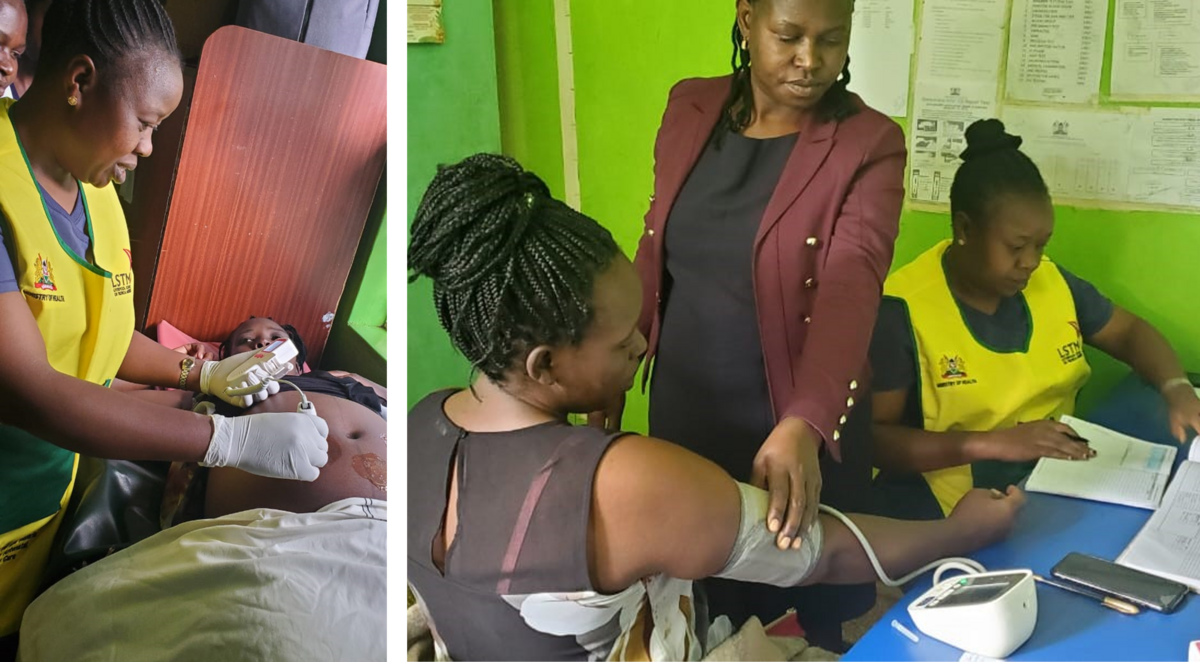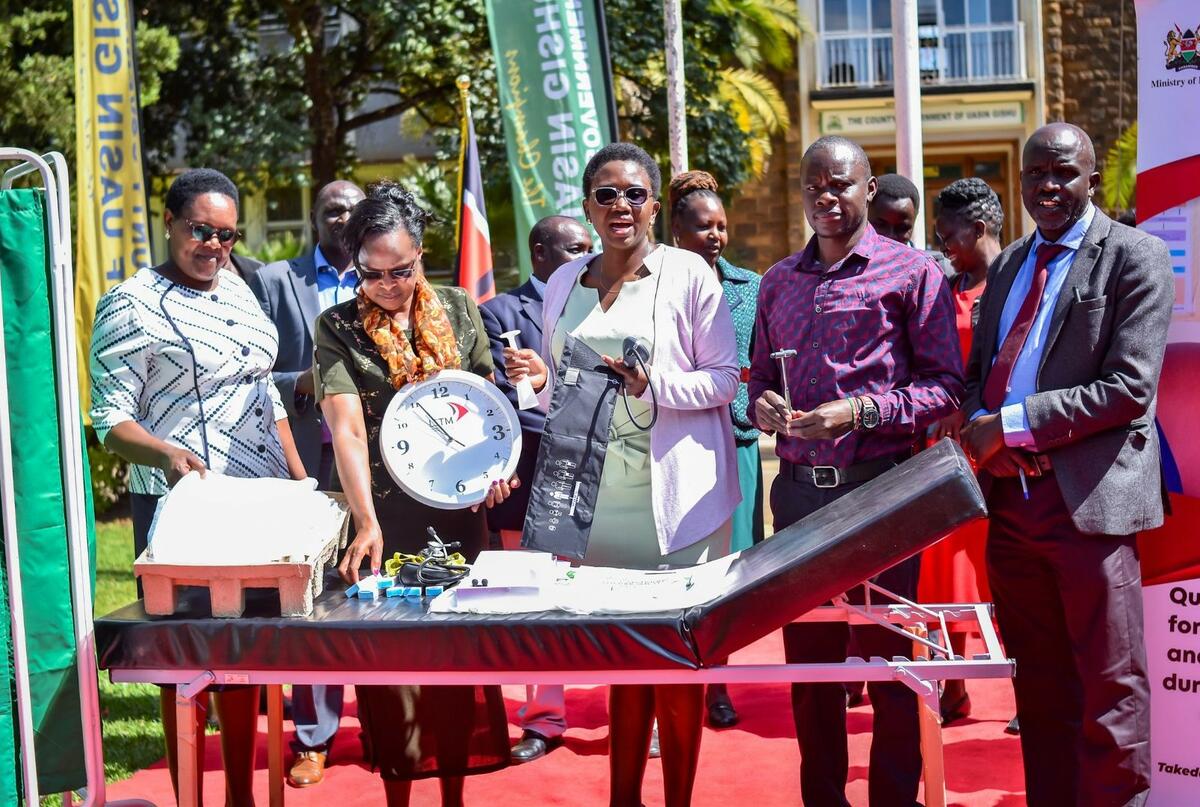
Authors:
Irene Nyaoke, Senior Technical Officer - Liverpool School of Tropical Medicine (LSTM) Kenya
Rael Mutai, Regional Technical Advisor- Liverpool School of Tropical Medicine (LSTM) Kenya
Lucy Nyaga, Country Director – Liverpool School of Tropical Medicine (LSTM) Kenya
Onesmus Maina, Technical Officer - Liverpool School of Tropical Medicine (LSTM) Kenya
Martin Eyinda, Technical Officer - Liverpool School of Tropical Medicine (LSTM) Kenya
Charles Ameh, Professor Global Health, Head, Department International Public Health and Emergency Obstetric and Quality of Care Unit, Liverpool School of Tropical Medicine, LSTM
“Kumbe Yuko Sawa kwa tumbo!” (Swahili to English translation - By the way, s/he is fine in the womb). Thirty-year-old Jerotich exclaimed as tears of joy well up in her eyes…she was referring to the baby in her womb following confirmation of the viable foetus using a Doppler foetal monitor. The monitor was donated to Kapsoya Health Centre in Uasin Gishu County (Kenya) by the Liverpool School of Tropical Medicine (LSTM). “The sound of the baby’s heartbeat brought instant relief to the room as I watched the mother deeply exhale, and the midwife’s eyes brighten with hope,” narrates Dr Irene Nyaoke of LSTM during a field monitoring visit to the facility.

The availability of functional medical equipment is crucial for providing quality patient care. It allows for accurate diagnosis, monitoring, and management of patient conditions, leading to favourable health outcomes. On the other hand, the shortage or absence of medical equipment at healthcare facilities may result in adverse clinical, economic, and humanistic patient outcomes. It can also cause frustration and demotivation among healthcare providers, negatively affecting the quality of care.
In Kenya, the average availability of basic medical equipment in health facilities is 77%, while only a quarter (24%) of these facilities have all the necessary basic equipment (MoH Policy brief-KHFA 2018). The lack of this equipment hinders quality care and, subsequently, the attainment of Universal Health Coverage (UHC).
In 2023, LSTM donated an assortment of essential MNH equipment to Uasin Gishu County through the Quality Improvement (QI) of integrated HIV, TB, and Malaria services in Antenatal and Postnatal care. The program is funded by the Takeda Corporate Social Responsibility program through the Global Fund.

While receiving the equipment at the Uasin Gishu County Health Office, the County Executive Committee Member for Health, Dr Everlynne Rotich (front row centre), acknowledged the LSTM partnership in the fight to end preventable maternal and perinatal deaths. Among the equipment received were examination couches, curtains/screens, stethoscopes, tape measures, doppler foetal monitors, pinard stethoscopes, clinical thermometers, manual blood pressure machines, patella hammers, baby weighing scales (newborn) and wall clocks. Kapsoya Health Centre, located in Ainabkoi sub-county, was one of the beneficiary health facilities in Uasin Gishu County.
Jerotich, at 38 weeks of pregnancy, had walked into Kapsoya Health Centre complaining of reduced to almost no foetal kicks for two days. This she believes could have been caused by her road travel to the countryside a few days earlier. Being her fifth pregnancy, with three living children, she had been regularly attending her antenatal care visits at the facility, and this was her 7th visit as she was towards the end of her pregnancy journey. Jerotich worried that she could lose the baby and decided to seek medical attention at the facility immediately.
Within a short period and at no additional cost, Jerotich and her baby were assessed, investigated using a Doppler foetal monitor, and managed by a competent and respectful health team.
Uasin Gishu County faces the challenge of a shortage and high turnover of healthcare providers. Even though Kapsoya Health Centre had an ultrasound machine, the facility did not have a qualified sonographer to operate it, and therefore, this service was unavailable at the health facility.
“Before we received the foetal dopplers from LSTM, we would have had to refer Jerotich to a private clinic in town for an ultrasound scan which would cost her time to get there, money for transport and pay for the medical procedure.” - Subcounty Reproductive Health Coordinator for Ainabkoi subcounty, Uasin Gishu County.
Starting in 2021, LSTM, with funding from the Takeda CSR program through Global Fund, has been supporting 61 health facilities in Kenya to strengthen capacity for improved quality of MNH services. Some implemented interventions include training healthcare providers in integrated ANC and PNC, using standards-based audits for quality improvement, and providing basic MNH equipment and monitoring to improve the quality of integrated HIV, TB, and malaria in antenatal and postnatal care. The program is implemented in collaboration with the National Ministry of Health and the County Health Departments of Uasin Gishu, Vihiga and Garissa.
Quality MNH care requires appropriate use of effective clinical and non-clinical interventions, strengthened health infrastructure, optimum skills, and a positive attitude among health providers. These will improve health outcomes and give women, their families, and the health care providers a positive experience.